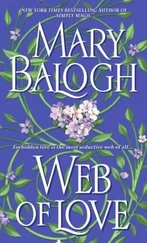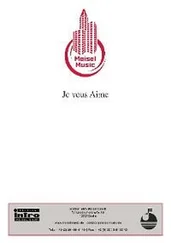“Alone again,” Marie Vieux-Chauvet writes, referring to the young man’s aunt Rose, “she had invented touchingly naïve myths to console herself: a leaf whirling in the wind, a butterfly whether black or alive with color, the hooting of an owl or the graceful song of a nightingale seemed pregnant with meaning.”
It is in Madness , however, the final novella of the trilogy, that we come closest to Marie Vieux-Chauvet’s own dilemma as a writer living and writing under a brutal authoritarian regime. Depicting four persecuted poets living in a shack, Marie Vieux-Chauvet echoes her own membership in Les Araignées du soir (Spiders of the Night), a small group of poets and novelists who met weekly at her house to discuss literature and one another’s work. Like actual spiders, they hoped to weave a protective web around themselves and keep out predatory pests. However, many were either jailed or exiled by the dictatorship from which Marie Vieux-Chauvet herself had no choice but to flee.
“There is a curious split in my behavior,” noted one of Madness’s own Spider poets. “I calmly go where I hear screaming, where I am certain the devils are committing murder. I avoid danger as I accuse myself of cowardice, loathing my own reactions. In the trunk, there are a few poems, unpublished, as are all of my poems about devils and hell. Enough of them there to get me pumped full of lead without anyone hesitating.”
Was Marie Vieux-Chauvet ever afraid to write? Especially after having three nephews and countless acquaintances and friends imprisoned, executed, or gone missing? Her triumph over her fears, if indeed she had any, seems to be infused in characters like Claire Clamont and Rose Normil and the poets who, in spite of the horrors they constantly face, refuse to stop living, to stop loving, and each in their own way, to stop creating.
“I write with my hand and my heart, not with my eyes,” declares the poet, who still manages to craft a few poems in the shack where he is hiding. Even with her first work, La Légende des fleurs (The Legend of Flowers), an allegorical play that was written when she was thirty-one and published under the pseudonym Colibri (Hummingbird), Marie Vieux-Chauvet was already displaying the type of caution that would have been wisely exercised by “songbirds” who feared the wrath of more powerful birds of prey. By the time she wrote this trilogy, however, she was already a seasoned novelist and was using her own name. La Danse sur le volcan (Dance on the Volcano), her epic novel on the revolutionary period leading to Haitian independence, was written ten years before this trilogy and was translated and published in the United States, joining Jacques Roumain and two Haitian brothers, Philippe and Pierre Thoby-Marcelin, as the only Haitian writers widely available to American readers who, during the occupation period, had been inundated by memoirs written by U.S. military officers who portrayed Haitians as savages, cannibals, and zombies.
Later, while living in Queens, New York, Marie Vieux-Chauvet wrote Les Rapaces (The Vultures), a novel that shows a writer wrestling with his work and his brutal surroundings after the death of François Duvalier. Through the valiant effort of an admirer, the writer’s work manages to live on, something which Marie Vieux-Chauvet must have dreamed for herself while writing about Haiti, in French, in the United States, not certain if either she or her books would ever find their way back to Haiti or would ever find an interested audience in the United States.
On June 19, 1973, at the age of fifty-seven, Marie Vieux-Chauvet died of brain cancer after five years in exile. The Duvalier dictatorship had been passed down from father to son, whom the U.S. government saw as a more acceptable face. Foreign investment flowed into Haiti, nurturing an atrocious sweatshop culture that added another layer of despair to the lives of a population that could not refuse to work, no matter what the pay. Other poor Haitians were sold by the Haitian government in secret deals to work in the sugarcane fields of the Dominican Republic and were shipped off like slaves to the other side of the island.
As a child growing up in Haiti at the time, I heard, along with the darkest of tales of the brutal Tonton Macoutes, or Chauvet’s “men in black,” stories of children being kidnapped so their organs could be harvested and used to save sick rich children in America. When one loves the work of a novelist who has prematurely died, one wonders what that writer might have produced in the years after his or her death. What would Marie Vieux-Chauvet have made, for example, of the period that followed the end of the Duvalier dictatorship when the son flew off into his own exile and the people, like the beggars of her trilogy and the masses of Les Rapaces , took to the streets in celebration and revenge?
During the final months of her life, Marie Vieux-Chauvet was researching and mapping out an epic novel called Les Enfants D’Ogoun (The Children of Ogoun), Ogoun being the Haitian god of war. We Haitians believe that our lwas , or gods, do not “cross water” or migrate, but I like to think that Ogoun, charmed as everyone was by Marie Vieux-Chauvet’s legendary beauty, wit, and intelligence, would have crossed any body of water for her. Unfortunately, Marie Vieux-Chauvet died before completing more than a few pages of this much hoped for book. Still, we are fortunate to have the work that she had already completed and to have seen her books slowly return to print, first in France, where the publication of this book was abruptly stalled in 1968, then in Haiti, and finally here in the United States where she died.
“I would like to be sure,” she writes in Love , “that Beethoven died satisfied to have written his concertos. Without this certainty, what would be the point of the painful anxiety of a Cézanne searching for a color that escapes him? Or of the anguish of a Dostoyesky grasping at God in the thoughts swarming within the hellish complexity of the soul!” I too would like to be sure that Marie Vieux-Chauvet died satisfied to have written, among others, the book that you are about to read. Reading it again, in this translation, I am a bit more certain that she did.
January 2009,
Miami, Florida
SHARP MINDS, RAW HEARTS
A Translator’s Preface
In discussing the novel, I indirectly reveal much of the plot. For many readers, it may be advisable to read the novel first before continuing .
In Haiti, State Against Nation: Origins and Legacy of Duvalierism , Michel-Rolph Trouillot points out that womanhood became a disadvantage in Haiti after 1957 with the election of François Duvalier, because of “the Duvalierist preference for the sexual ‘conquest’ of females associated with the political opposition, from torture-rape to acquaintance-rape and marriage.” Indeed, there is torture-rape in each of the novellas in Marie Vieux-Chauvet’s 1968 trilogy, Love, Anger, Madness , and it is no wonder that in the last fifteen years most readers of the trilogy have focused on the plight of the female protagonists in the first two volumes. What is truly radical about Chauvet’s writing, however, is not just that she writes about political sexual violence and about sexuality, but that she allows her male and female protagonists to cast a critical eye on everything, including themselves. Indeed, they are never unambiguously heroic, innocent, or even sympathetic.
At the beginning of Love , which takes the form of a journal kept by Claire Clamont, a self-conscious dark-skinned intellectual from a conservative “white mulatto” bourgeois family, she confesses:
We have been practicing at cutting each other’s throats since Independence. The claws of our people have been growing and getting sharper. Hatred has hatched among us, and torturers have crawled out of the nest. They torture you before cutting your throat. It’s a colonial legacy to which we cling, just as we cling to French. We excel at the former but struggle with the latter. I often hear the prisoners’ screams. The prison is not far from my house. […] The police force has become vigilant. It monitors our every move. Its representative is Commandant Calédu, a ferocious black man who has been terrorizing us for about eight years now. He wields the right of life and death over us, and he abuses it. […] And cruelty is contagious: kneeling on coarse salt, forcing a victim to count the blows tearing at his skin, his mouth stuffed with hot potatoes, these are a few of the minor punishments some of us [members of the bourgeois mulatto class] inflict upon our child-servants. Upon those turned slaves by hunger, who must suffer our spite and rage in all its voluptuousness.
Читать дальше












